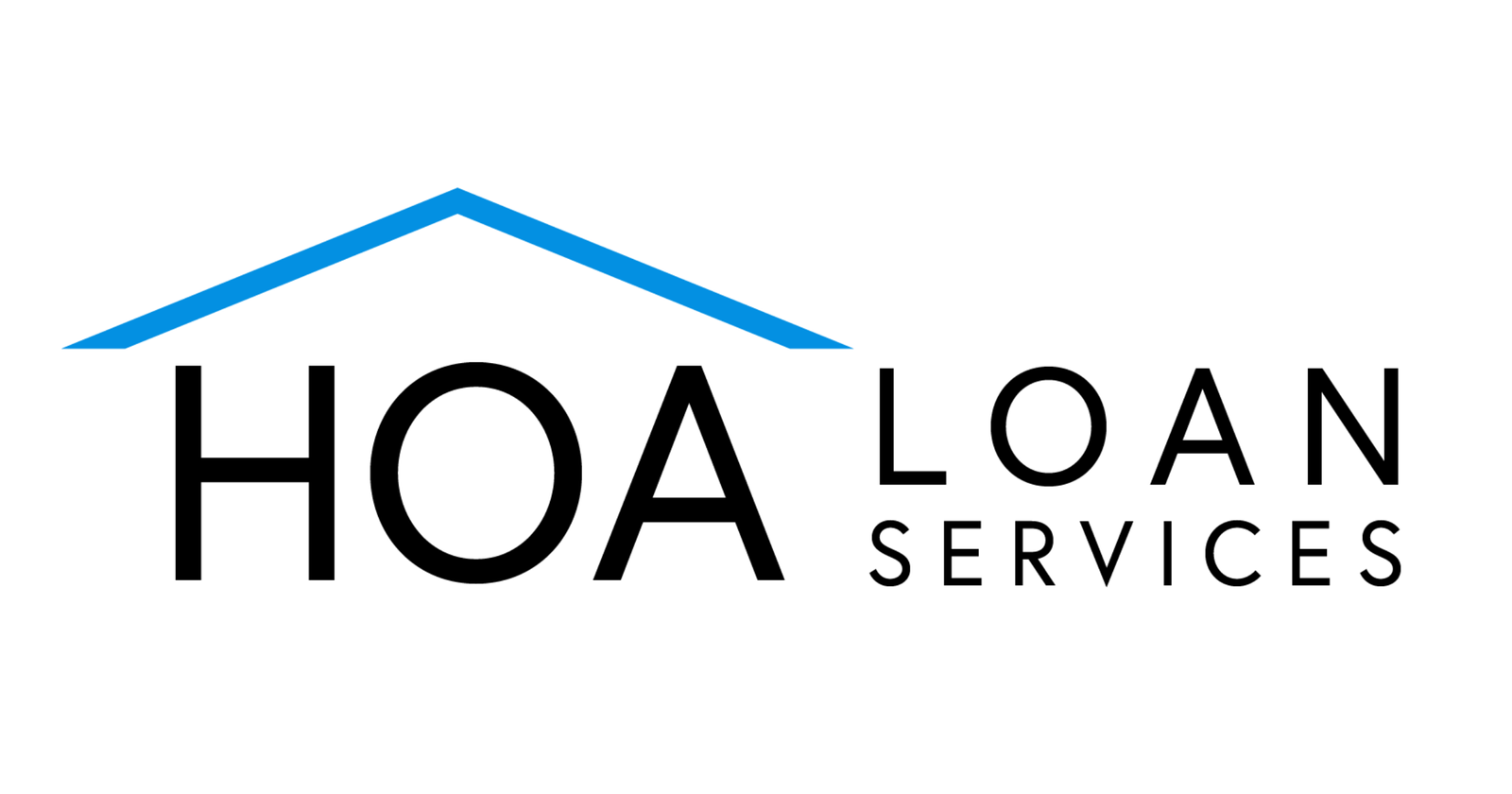HOA Loans
Introduction:
Homeowners’ Association (HOA) boards must manage their finances carefully to maintain the efficient operation of their community. However, there are times when HOAs need more money in their funds to cover significant initiatives or unforeseen costs. Board members may obtain HOA loans to pay for these initiatives.
HOA loans are a significant investment for any neighborhood. Along with impacting the HOAs financially, it may also affect homeowners individually. This is why it’s crucial to comprehend HOA loans in detail concerning their advantages and disadvantages.

What is an HOA Loan?
An HOA loan is a sum of money that a corporation borrows from a bank or other creditor under the condition that they repay it, plus interest, within the predetermined time frame. The interest is added to the principal as a percentage of the loan.
It’s significant to remember that there are several HOA loans.
The four primary ones are as follows:
Line of credit: A flexible loan with a fixed borrowing cap is a line of credit. The bank or creditor will assess only interest on the borrowed money. Due to the variable interest rate, loan payments are not set at a fixed monthly amount. Typically, a line of credit has terms of one to five years.
For HOAs with immediate problems, a line of credit is best. It can act as a band-aid while the HOA heals. For instance, a pre-established credit sequence is beneficial if a natural disaster strikes your community, and you must fix problems immediately.
Convertible Line of Credit: This loan has two parts. The initial step of the loan is a line of credit. As a result, the HOA pays interest on the borrowed money.
The loan converts to a regular-term HOA loan after a year or upon project completion. The bank or creditor determines the interest rate on the HOA loan, and the HOA must begin making principal and interest payments as soon as the term period is over.
Standard-Term HOA Loan: With this loan, the HOA immediately receives the entire loan amount from the creditor and then repays it over the specified term period. Extensive renovations or land purchases are best suited for this financing. The term length is between five and fifteen years. Since the interest rate is set, the HOA makes a consistent monthly payment.
Standard-Term HOA Loan: This loan is similar to a regular term loan with a shorter duration. These loans cover three to ten years.
Although the monthly loan payments are more significant, HOAs can pay them off more quickly. Additionally, there needs to be more interest to repay.

Advantages of HOA Loan:
1.For homeowners, lower fees:
HOA loans are more manageable from a homeowner’s standpoint than special assessments. With the latter, homeowners are in charge of generating finances for the tasks their HOA has in mind. They have limited time and must come up with the money immediately. This can be stressful and impractical, especially when homeowners need help paying the additional assessment payments. Homeowners will still see an increase in their monthly payments with a HOA loan, but it will be less than a special assessment.
Additionally, because HOA loans are repaid over time, residents will only be required to make payments while residing in the neighborhood. A family who only stays in their home for ten years will only be responsible for paying for those years, for instance, if a HOA took out a 15-year loan. The remaining five years’ payments will subsequently be transferred to the new owners.
2.HOA Board that Works Better:
Your board can operate more efficiently with a HOA loan. The board members of your HOA will be able to carry out planned projects like maintaining infrastructure and repainting driveways if there is adequate money in the accounts. Even more, land may be purchased with the help of the HOA loan, and discounted upfront insurance premium payments may be made.
Unexpected expenses could be covered by a HOA loan as well. For instance, the neighborhood’s public spaces may sustain damage during hurricane season. The board can quickly make the necessary repairs and modifications with enough funds. If the HOA board can carry out its duties efficiently, the homeowners can see how the dues they pay each month are applied to improving the neighborhood.
Disadvantages of HOA Loan:
Taking the Right Uses of the Fha Loans:
You are adding debt to your HOA by taking out a loan. Community care and maintenance usually require this. If you misuse a HOA loan, it might have devastating consequences.
An HOA loan should not reduce monthly dues. For instance, homeowners might take out a loan to cover the additional running costs if the HOA board committed not raising the rates. Keep in mind that incurring debt for your HOA is not a good idea in the long term for this reason.
Logically, the board will eventually need to raise dues, even if nobody wants to. Buildings in the neighborhood will require more maintenance as they age and deteriorate further. But the budget should account for these rising operating expenses. The board should turn to something other than HOA loans for these costs.
Additionally, People should refrain from using HOA loans to cover extra costs. The only result will be that the homeowners will end up paying too much for goods or services the neighborhood never really needed. You’ll incur unnecessary expenses for your area.

1.Dealing with Delinquent Homeowners:
There will always be a fair number of late-paying homeowners in every HOA. These are the members that are defaulting on their regular dues to the association. If you take out a HOA loan, there may be complications and delays with loan repayment.
The owners or the other homeowners will be under more stress. Sometimes, the bank may even touch your reserve cash for the monthly loan installments. The cost of dealing with defaulting homeowners may increase if you choose to file a lawsuit.
Therefore, you should be cautious of late-paying residents if you intend to take out a HOA loan. It might also be wiser to choose a specific assessment in this situation. The HOA board will then have the chance to determine who the non-paying residents are in their neighborhood. Once the problem with the defaulting homeowners has been resolved, the board will feel more comfortable borrowing money from an HOA.
2. Managing the HOA Loan
It takes work to obtain a HOA loan. Just applying for a loan requires much preparation. The bank will request a lot of information, including the number of homes or units in the community, delinquency rates, the amount of liquid cash, a recent reserve study, annual and interim financial reports, the scope of the proposed project, and estimates from contractors, to assess your credit risk and determine HOA loan rates.
Once you have obtained a HOA loan, you must manage it to make the monthly loan installments. The HOA board is under much pressure due to these expectations and specifications. Additionally, be sure the board is qualified to handle any HOA loan needs. If not, a HOA management business is always available for advice. It will help you legally and financially control every aspect of your HOA loan.
Can Every HOA Secure a Loan?
If its Bylaws permit it, HOAs can often obtain a loan. If the governing documents are correctly drafted, they will specify the board’s ability to receive a loan under specific conditions and other credit-related matters. In many HOAs, the board must receive a majority vote before applying for a
State laws may also occasionally provide provisions allowing for loan security.For instance, Section 7140(I) of the California Corporations Code describes a corporation’s ability to borrow money. Additionally, there are particular requirements a HOA must meet in Indiana to obtain a loan.
Certain states don’t have laws governing this power. However, a trustworthy HOA will always inform members before taking out a loan. Most boards will also leave time for questions, concerns, and comments at a future board meeting.
How Do You Apply for an HOA Loan?
HOAloans typically have a principal plus interest structure because most banks and creditors perceive them like business loans. Loans taken out by HOAs must be in the association’s name, and the maximum time for repayment is usually 15 years.
You can now apply for HOA loans online or in person. The entire loan application and approval process usually takes six months. The process entails numerous steps and involves multiple stakeholders; thus, the timing can change.
Do Banks Require Collateral for HOA Loans?
Most HOAs can only obtain financing from respectable institutions like banks. Most banks don’t require HOA collateral or other security for HOA loans.
OOf course, a HOA should only request a loan if it has solid grounds for believing it can repay the debt. Every time a HOA contemplates a loan, financial preparation is essential. The board should be able to explain its repayment strategy to the members and have a clear plan in place.
Tips and Things to Keep in Mind:
If your HOA decides to apply for a loan, you should be aware of the following:
- Working with a capable bank that focuses on community associations is something you want to do. It is advisable to only use banks with experience working with HOAs. Please make sure the bank from which you want to borrow money is familiar with dealing with HOAs by researching it.
- Preceding an increase in dues is not possible with a HOA loan. A loan automatically requires increased payments to cover operations, reserve cash, and new loan installments.
- Side effects may affect homeowners. Homes in the neighborhood may need help to qualify for certain mortgages or financing choices due to HOA debt. Due to this, it may be very challenging for homeowners to sell their homes while also depreciating community property values. This naturally emphasizes how crucial it is to have a clear plan to repay the HOA loan on schedule.
- It is essential to spend the loan proceeds properly. The board should formulate a clear strategy for how to use the funds.
- It is essential to spend the loan proceeds properly. The board should formulate a clear strategy for how to use the funds.




Post Comment